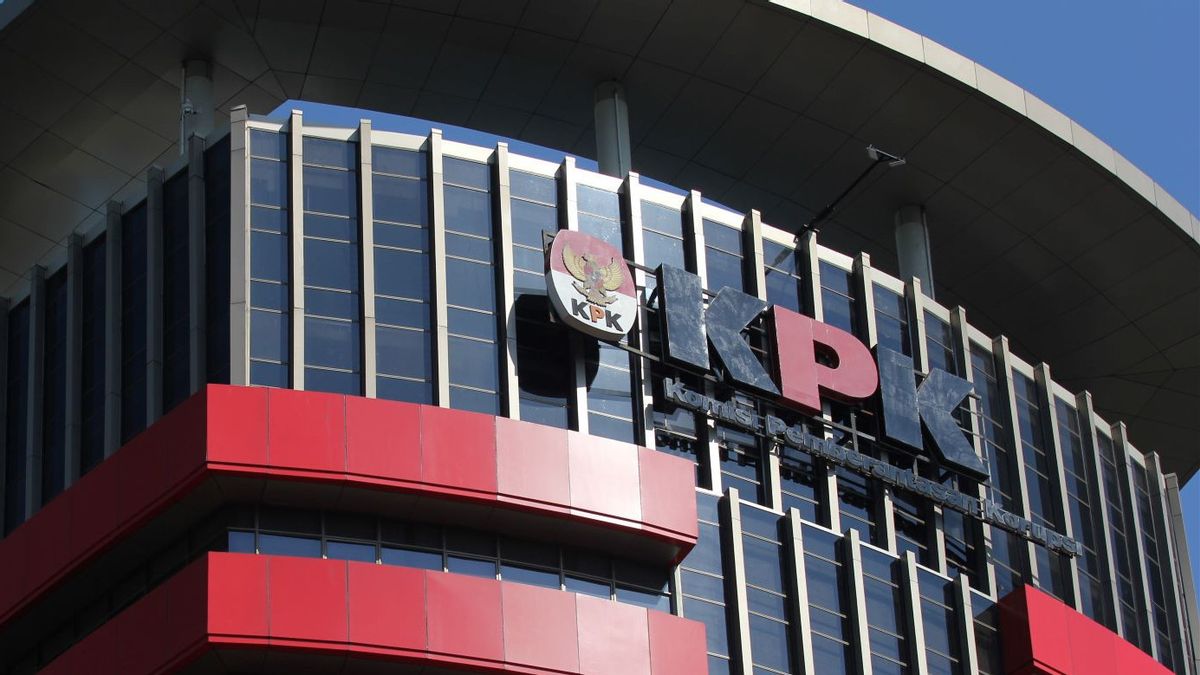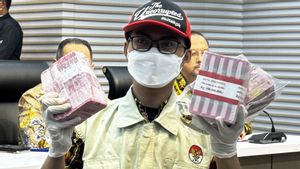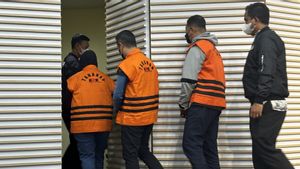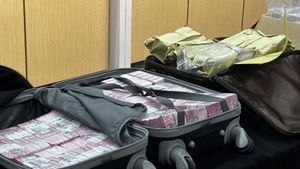JAKARTA - The Corruption Eradication Commission (KPK) emphasizes that good business practices and integrity play a role in reducing the number of corrupt practices.
This was conveyed by the Acting Deputy for Education and Community Participation of the KPK Wawan Wardiana when speaking at the 2021 International Business Ethics Conference (IBEC) with the theme 'Ethics in Business: Big Challenge' on Thursday, July 8 yesterday.
"Transparency International's survey indicators in measuring the Corruption Perception Index (GPA) are also many related to the business world. So if we look not only at law enforcement, but also related to business processes that occur in the field and the political system," said Wawan as quoted from his written statement, Friday, July 9.
During the meeting, Wawan explained the definition of corruption, the types of corruption, the authority of the KPK in anti-corruption education, prevention and prosecution of corruption, and the impact of corruption.
In addition, he also explained how the community plays a role in eradicating corruption. One of them, said Wawan, is to report any allegations of corruption in their environment to the KPK by becoming a whistleblower.
He believes the community can play a role in eradicating corruption. Moreover, the anti-corruption behavior survey from the Central Statistics Agency (BPS) shows good scores from year to year.
"This means that the anti-corruption behavior of the people in Indonesia is good. Although there are still 17.63 percent of the people who still provide something in terms of public services, either voluntarily or not. This makes the society permissive or all-permissible," said Wawan.
At the meeting, Wawan also mentioned that 80 percent of corruption cases involve the private sector or the public sector and agencies usually have the mode of bribery, gratification, and procurement of goods and services. He said that currently, there are at least six companies that have been ensnared as corporate suspects.
Thus, he emphasized the importance of building and instilling integrity in oneself and the immediate environment such as family and workplace. Moreover, not a few people commit corruption because of the demands of their immediate environment.
"If we can't influence the environment, it's the environment that will affect us. In Indonesia, if we only rely on prosecution, there will be no corruption cases," said Wawan.
"For this reason, the Corruption Eradication Commission uses 3 approaches, prosecution so that there is a deterrent effect, prevention by improving the system so that corruption cannot and education by building values, anti-corruption character in individuals so that they do not want corruption," he added.
Furthermore, Wawan also said that the KPK has collaborated with the Indonesian Chamber of Commerce (Kadin) so that the private sector participates in anti-corruption prevention programs and campaigns, including encouraging the implementation of the Corruption Prevention Guide for the Business World (CEK).
One of them is the implementation of an independent Whistle-Blowing System (WBS). Currently, he said, at least there are WBS from 27 SOEs that are integrated with the KPK. "The success of the KPK is due to the participation of the people who have the courage and move to report corruption," said Wawan.
"KPK also recommends digitizing the WBS complaint system for the security of reporters, commitment from organizational leaders in implementing WBS, as well as WBS managers with integrity and independence," he concluded.
The English, Chinese, Japanese, Arabic, and French versions are automatically generated by the AI. So there may still be inaccuracies in translating, please always see Indonesian as our main language. (system supported by DigitalSiber.id)









